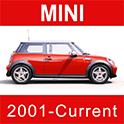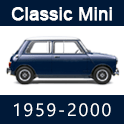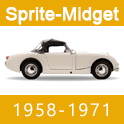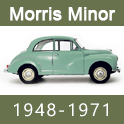|
Total posts: 8382
Last post: Jan 13, 2022 Member since:Feb 7, 2006
|
Cars in Garage: 0
Photos: 0 WorkBench Posts: 0 |

|
Remove the caliper and insert a couple of thin flat washers between the caliper and hub so it centers the rotor again. Drive it around the neighborhood slowly to see if the noise still occurs. This is not a fix just a test.
I would suspect you either have bearings going bad or wear on the hub but don't understand why you do not have any play.
I would suspect you either have bearings going bad or wear on the hub but don't understand why you do not have any play.
If in doubt, flat out. Colin Mc Rae MBE 1968-2007.
Give a car more power and it goes faster on the straights,
make a car lighter and it's faster everywhere. Colin Chapman.
|
Total posts: 2040
Last post: Mar 20, 2025 Member since:Aug 29, 2001
|
Cars in Garage: 0
Photos: 0 WorkBench Posts: 0 |

|
Quote:
Originally Posted by Dan Moffet
Rust also builds up on the edge of the disk. The upswept portion of the disk rusts quickly due to heat and moisture in the air. I can see rust on your new disk.
When you apply hard breaking, the forces on the hub cause the rotating parts to deform slightly under the strain and the disk can touch a fixed object that is very close. Rust, flaky, crusty rust will make contact, but not continuously, so it does not get burnished.
When you apply hard breaking, the forces on the hub cause the rotating parts to deform slightly under the strain and the disk can touch a fixed object that is very close. Rust, flaky, crusty rust will make contact, but not continuously, so it does not get burnished.
per my response to Doug, (but before replacing the caliper) , first I am going to look at the other (right) side of the car and see what the calipers and pistons are like over there. I can only assume that since there is no noise there, that I will not find the same asymmetrical movement of the pistons that is on the noisy left side. How could the asymmetry of piston movement on the noisy left side ever be normal?
Isn't that the elephant in the room?
|
Total posts: 2040
Last post: Mar 20, 2025 Member since:Aug 29, 2001
|
Cars in Garage: 0
Photos: 0 WorkBench Posts: 0 |

|
Quote:
|
Total posts: 9830
Last post: May 9, 2025 Member since:Aug 14, 2002
|
Cars in Garage: 0
Photos: 0 WorkBench Posts: 0 |

|
Harvey, the rust I was talking about is on the area of the disk that is untouched by the pads. On an older disk, the faces of the disk are worn, except where the pad doesn't touch, which leaves a lip on the perimeter of the disk faces. Rust also builds up on the edge of the disk. The upswept portion of the disk rusts quickly due to heat and moisture in the air. I can see rust on your new disk.
When you apply hard breaking, the forces on the hub cause the rotating parts to deform slightly under the strain and the disk can touch a fixed object that is very close. Rust, flaky, crusty rust will make contact, but not continuously, so it does not get burnished.
When you apply hard breaking, the forces on the hub cause the rotating parts to deform slightly under the strain and the disk can touch a fixed object that is very close. Rust, flaky, crusty rust will make contact, but not continuously, so it does not get burnished.
.
"Hang on a minute lads....I've got a great idea."
|
Total posts: 9241
Last post: Aug 17, 2023 Member since:Jun 5, 2000
|
Cars in Garage: 0
Photos: 0 WorkBench Posts: 0 |

|
Quote:
Originally Posted by h_lankford
any rust should burnish off with a bunch of stops - it does not . Occurs hot or cold.
Doug L.
|
Total posts: 2040
Last post: Mar 20, 2025 Member since:Aug 29, 2001
|
Cars in Garage: 0
Photos: 0 WorkBench Posts: 0 |

|
Quote:
Originally Posted by Dan Moffet
Looking at your first photo the slot at the bottom is not centred on the rotor (or vie-versa). The clearance on the left looks to me narrow enough to rub under braking distortion. It would only take a bit of rust scale at the outer rim of the disk to make contact. (I have been known to descale the rim on occasion to eliminate dry, scratchy sounds.)
But if that is the problem
(1) you think it would have occurred from day 1
(2) there would be a witness mark on the rotor. There is none on any of the smooth swept or rusty unswept areas .
This means the noise is somehow coming from the pad-rotor interface ; vibrating? unequal pressure?
I need to think about this. I replaced the roller bearings in 2003. They seem perfect still. But if they now were worn a bit and the assembly moved inbound, then would that re-position the rotor inbound and perhaps rub on the caliper housing slot???? Still tho, if that were the fact, there should be a scored mark on whatever is rubbing. There is no in/out play on the bearings when grabbing the wheel and yanking in/out or up/down or diagonal.
|
Total posts: 2040
Last post: Mar 20, 2025 Member since:Aug 29, 2001
|
Cars in Garage: 0
Photos: 0 WorkBench Posts: 0 |

|
Dan
I have had the pads in and out several times.
Any potential misalignment you might see in the first photo at the (removed) shim and the (removed) cotter pins does not seem to matter, noise -wise.
there is not a dry scratchy sound but more like coarser grinding when heard ( felt?) from inside the car. With the window down or to an observer outside the car, the sound is more like you would expect for a noisy rotor
any rust should burnish off with a bunch of stops - it does not . Occurs hot or cold.
the pads have enough clearance -I can rotate the assembly by hand even with the wheel off.
There is no noise when I do this, or with very light braking on the road.
The noise only comes with moderate or stronger braking
I have had the pads in and out several times.
Any potential misalignment you might see in the first photo at the (removed) shim and the (removed) cotter pins does not seem to matter, noise -wise.
there is not a dry scratchy sound but more like coarser grinding when heard ( felt?) from inside the car. With the window down or to an observer outside the car, the sound is more like you would expect for a noisy rotor
any rust should burnish off with a bunch of stops - it does not . Occurs hot or cold.
the pads have enough clearance -I can rotate the assembly by hand even with the wheel off.
There is no noise when I do this, or with very light braking on the road.
The noise only comes with moderate or stronger braking
|
Total posts: 9830
Last post: May 9, 2025 Member since:Aug 14, 2002
|
Cars in Garage: 0
Photos: 0 WorkBench Posts: 0 |

|
Looking at your first photo the slot at the bottom is not centred on the rotor (or vie-versa). The clearance on the left looks to me narrow enough to rub under braking distortion. It would only take a bit of rust scale at the outer rim of the disk to make contact. (I have been known to descale the rim on occasion to eliminate dry, scratchy sounds.)
.
"Hang on a minute lads....I've got a great idea."
|
Total posts: 2040
Last post: Mar 20, 2025 Member since:Aug 29, 2001
|
Cars in Garage: 0
Photos: 0 WorkBench Posts: 0 |

|
Quote:
Originally Posted by minibitz
I would check the shims again that go between the pad and pad pins. The last few batches of these I've had have not had sufficient clearance for the rotor. The notch in the shim where the rotor sits is not as wide as an original set, so on occasion the legs of the shim bend inwards and foul the rotor making an horrendous squealing noise.
I used the old shims. Could the new rotor be too thick for the slot? It did not make the noise for 6 months.
I carefully looked at the rotor and did not see any bright scored marks on either side or end of rotor and not where the shims would rub if they could
|
Total posts: 2040
Last post: Mar 20, 2025 Member since:Aug 29, 2001
|
Cars in Garage: 0
Photos: 0 WorkBench Posts: 0 |

|
no obstructions seen.
thought is that piston (or bore, or seals) is just sticky. Pistons are SS, but bore could be rusty?
Car sits in unheated garage, gets driven once every 1-2 weeks
After partially pushing the pistons out for the picture, I pushed them back in. By feel could not detect any crunching
only way I see to prove this piston theory is to replace it
I suppose I should bleed the brakes, but it is hard to believe a bubble (not there in the beginning) would do this
thought is that piston (or bore, or seals) is just sticky. Pistons are SS, but bore could be rusty?
Car sits in unheated garage, gets driven once every 1-2 weeks
After partially pushing the pistons out for the picture, I pushed them back in. By feel could not detect any crunching
only way I see to prove this piston theory is to replace it
I suppose I should bleed the brakes, but it is hard to believe a bubble (not there in the beginning) would do this
|
Total posts: 382
Last post: Apr 23, 2025 Member since:Jul 26, 2010
|
Cars in Garage: 0
Photos: 0 WorkBench Posts: 0 |

|
I would check the shims again that go between the pad and pad pins. The last few batches of these I've had have not had sufficient clearance for the rotor. The notch in the shim where the rotor sits is not as wide as an original set, so on occasion the legs of the shim bend inwards and foul the rotor making an horrendous squealing noise.
|
Total posts: 10292
Last post: Apr 14, 2025 Member since:Mar 24, 1999
|
Cars in Garage: 0
Photos: 0 WorkBench Posts: 0 |

|
Is there any kind of spacer, washer or dust shield between teh caliper and the hub ?
There shouldn't be, but if there is it will throw the caliper to one side like that.
|
Total posts: 2040
Last post: Mar 20, 2025 Member since:Aug 29, 2001
|
Cars in Garage: 0
Photos: 0 WorkBench Posts: 0 |

|
|
Total posts: 2040
Last post: Mar 20, 2025 Member since:Aug 29, 2001
|
Cars in Garage: 0
Photos: 0 WorkBench Posts: 0 |

|
 New calipers with SS pistons and new rotor and new pads 2 years ago.
New calipers with SS pistons and new rotor and new pads 2 years ago.After a year, front brakes pulsated, rotor warped and replaced with higher grade, both sides.
All was well for a while
Now only on braking, one rotor makes a lot of grinding noise. Not squealing
No witness marks of any interference anywhere on rotor/moving parts.
Dust/water shield not touching.
All suspension tight. Bearings good. Castle nut tight.
So I flipped pads inside to outside. No change.
Got new pads different grade. No help
So now the question is if the rotor itself is vibrating on braking, could it be becausue of unequal pressure applied by the pistons not moving equally? So I tested it (thanks CTR)
See photo with pad in place. already looks like outside piston is moving more (left side drive)





